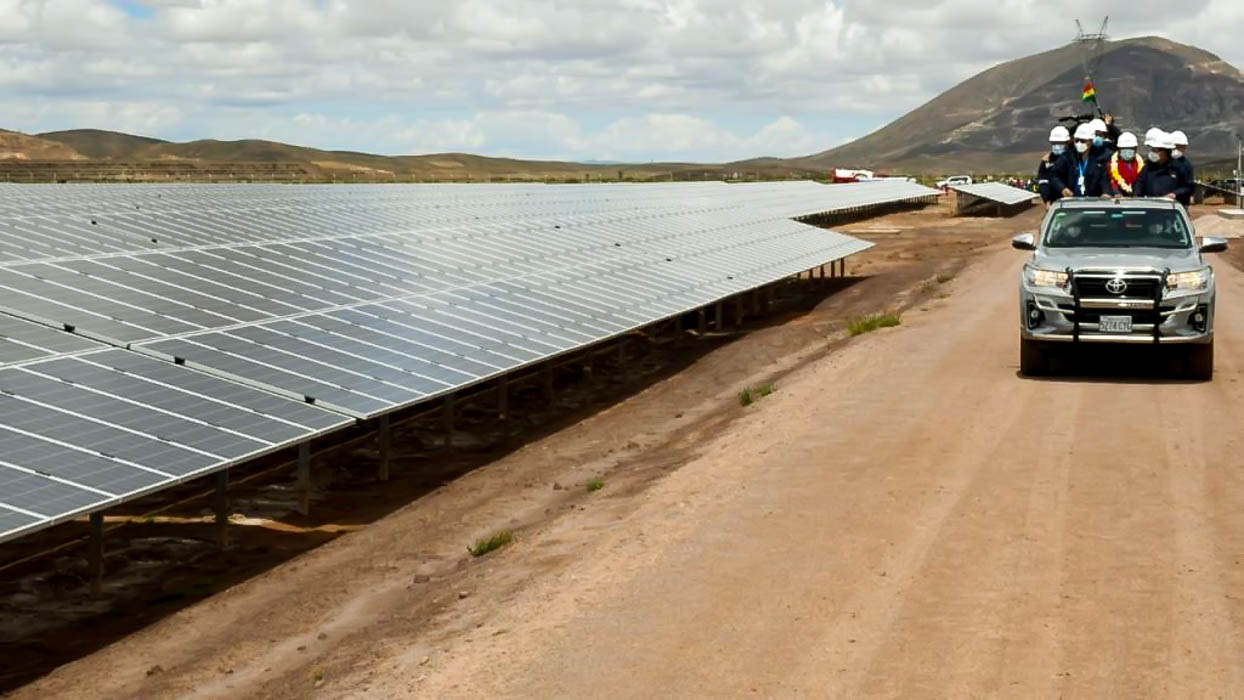The President of Bolivia, Luis Arce, inaugurates the largest photovoltaic plant in the country, supplied by TSK.
11 February, 2021

The Oruro Solar Photovoltaic Plant increased its power to 100 megawatts (MW) with the start of commercial operation of phase II of the country’s largest project of its kind, inaugurated on Wednesday by President Luis Arce Catacora, with which the Oruro region has thus guaranteed the supply of all the electricity consumed by homes, businesses and industries.
The Head of State stressed that the economic policies that are being applied allow the country to enter the stage of clean or renewable energy production, within the framework of care for the environment and for the Pachamama (Mother Earth).
“We started this plant with the production of 50 MW and today we are inaugurating it to reach 100 MW. The department of Oruro has the energy production it consumes completely guaranteed,” Arce said during the ceremony to hand over phase II of the photovoltaic plant, as part of the commemoration of the 240th anniversary of the creation of Oruro. The solar plant is 3,735 metres above sea level and is located in the Cercado province, Caracollo municipality, Ancotanga area, in the department of Oruro.
The project has been financed by the French Development Agency (AFD), the European Union (EU) and a loan from the Central Bank of Bolivia (BCB).
The whole project (phase I and II) has 300,000 panels installed over 208 hectares.
The plant takes advantage of the high levels of solar radiation in the highlands to generate clean energy, contributing to the change in the country’s energy matrix and improving the conditions for universal access to electricity services.
“We say from here to the world, to our brothers in Oruro and throughout the country, that we are going to continue and we are going to conclude all the works that we were doing for the benefit of the Bolivian people,” said President Arce Catacora.
The European Union (EU) ambassador in Bolivia, Michael Dóczy, highlighted the completion of the photovoltaic plant and Bolivia’s potential in the sector. He said that this “is an example of how alternative renewable energies can be used to reduce the negative effects of climate change”.
Dóczy pledged the EU’s support to the country for the development of clean energy. He pointed out that the European Union had made a donation of $14 million for the solar plant.


 Electrical Infrastructures
Electrical Infrastructures 
 Industry
Industry Gas to Power
Gas to Power